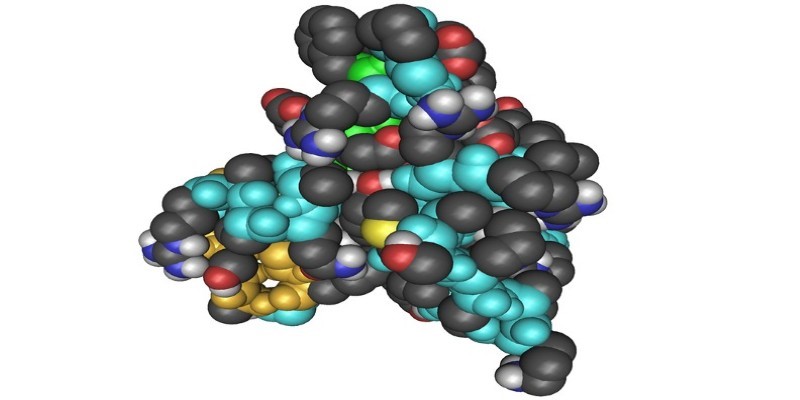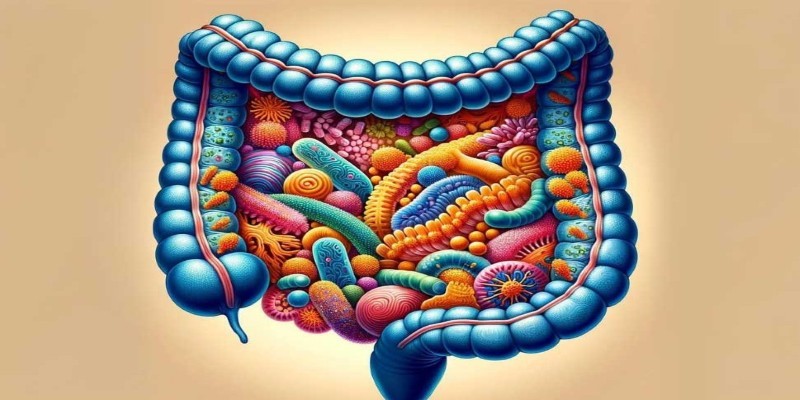
What Is The Connection Between Obesity And Cancer
 Health & medical treatment
Health & medical treatment Obesity is one of the most pressing health concerns of the 21st century. It is known to increase the risk of several chronic conditions, including heart disease, diabetes, and stroke. However, in recent years, research has also shed light on the significant connection between obesity and cancer. While the link between obesity and cancer risk has been established for some time, the exact mechanisms remain complex and multifaceted. Understanding this connection is crucial in mitigating cancer risk and improving treatment strategies for those affected by both obesity and cancer.
Obesity is one of the most pressing health concerns of the 21st century. It is known to increase the risk of several chronic conditions, including heart disease, diabetes, and stroke. However, in recent years, research has also shed light on the significant connection between obesity and cancer. While the link between obesity and cancer risk has been established for some time, the exact mechanisms remain complex and multifaceted. Understanding this connection is crucial in mitigating cancer risk and improving treatment strategies for those affected by both obesity and cancer.
The Growing Concern: Obesity As A Cancer Risk Factor
Obesity, defined as having excess body fat that negatively impacts health, is associated with an increased risk of many types of cancer. In fact, it is considered the second leading modifiable risk factor for cancer after smoking. According to estimates, nearly 1 in 5 cancer cases worldwide are linked to obesity. This relationship is particularly concerning as global obesity rates have been steadily rising, making the obesity-cancer connection even more relevant.
The link between obesity and cancer can be attributed to several factors, including inflammation, hormonal changes, and metabolic abnormalities. Adipose (fat) tissue is not merely a passive storage of excess energy; it is an active endocrine organ that secretes various hormones and molecules. These include adipokines, which influence insulin sensitivity, metabolism, and inflammation. The excess fat in obese individuals often leads to a state of chronic low-grade inflammation, which has been implicated in the development of cancer.
Biological Mechanisms Behind Obesity-Driven Cancer Risk
Obesity's impact on cancer is multifactorial. First, fat tissue produces excess estrogen, particularly in postmenopausal women. Estrogen is a hormone that plays a key role in the development of cancers such as breast, endometrial, and ovarian cancers. The higher levels of estrogen in obese individuals can, therefore, promote the growth of these cancers.

Second, obesity changes insulin and insulin-like growth factors (IGFs). Elevated insulin levels, which are common in obese individuals, can stimulate the growth of certain cancer cells. These high insulin levels, combined with an overproduction of IGFs, can create an environment that encourages the growth and spread of cancer.
Another vital mechanism involves the immune system. In obese individuals, there is a shift in the balance of immune cells, with an increased number of macrophages involved in inflammation. Recent studies have highlighted how obesity can alter macrophage activity in tumours. Macrophages in obese individuals often express higher levels of PD-1, a protein associated with immune suppression. This suppresses the body's ability to detect and fight cancer cells. Interestingly, blocking PD-1 in cancer treatment has been shown to improve immune response and potentially reduce cancer growth.
The "Obesity Paradox": A Complicated Relationship With Treatment
Despite the clear connection between obesity and an increased risk of cancer, there is an intriguing phenomenon known as the "obesity paradox." This paradox refers to the observation that, while obesity may worsen the likelihood of developing cancer, it can sometimes improve the response to specific cancer treatments, particularly immunotherapy. For instance, research has found that individuals with obesity may have a better response to immune checkpoint inhibitors, designed to help the immune system attack cancer cells.

This paradox has been explored through studies in both human and animal models. It was found that macrophages in obese individuals' tumours tend to express higher levels of PD-1. This alters the immune environment, suppressing anti-cancer immunity and allowing tumours to grow unchecked. However, blocking this PD-1 protein with targeted therapies has been shown to enhance immune responses and help fight cancer more effectively. Thus, while obesity may contribute to cancer progression, it also creates a more favourable setting for specific immune therapies.
Obesity And Cancer Types: The Role Of Fat Distribution
Not all types of cancer are equally influenced by obesity, and how fat is distributed in the body also matters. Abdominal obesity, where fat is concentrated around the midsection, has been particularly associated with an increased risk of cancers such as colorectal, pancreatic, and liver cancers. Visceral fat, which surrounds internal organs, is thought to have a more significant impact on inflammation and metabolic disturbances than subcutaneous fat, which lies beneath the skin. As a result, abdominal obesity is often considered a higher risk factor for cancer than obesity, with fat stored in other areas of the body.
Obesity’s Effect On Cancer Detection And Treatment
The physical presence of obesity can complicate both the detection and treatment of cancer. For example, obesity can make it harder to detect cancers early because standard diagnostic tests, such as imaging or physical exams, may not be as practical in individuals with a higher body mass. In certain cancers, such as breast cancer, larger breasts in obese individuals can make manual exams more challenging. Additionally, obesity can affect blood tests, potentially leading to inaccurate readings.

Cancer treatment can also be more challenging for obese individuals. Many chemotherapy drugs, for instance, are dosed based on a patient's weight, and those with obesity may require higher doses, which increases the risk of side effects. Furthermore, obesity can affect how the body metabolizes drugs, potentially influencing the effectiveness of the treatment. Obesity can also hinder the surgical removal of tumours, especially when excess fat surrounds the area of interest.
Prevention And Weight Management Strategies
While obesity significantly raises the risk of developing cancer, maintaining a healthy weight can reduce this risk. Managing weight through a balanced diet, regular exercise, and lifestyle changes is one of the most effective strategies for cancer prevention. Several studies have shown that even a modest weight loss can have a substantial impact on reducing cancer risk, particularly when it comes to cancers like breast, endometrial, and colorectal cancers.
Exercise also plays a crucial role in mitigating cancer risk. Regular physical activity helps regulate hormones, improve immune function, and reduce inflammation, all contributing to a lower cancer risk. In particular, aerobic exercise has been linked to a reduced risk of several types of cancer, including those of the breast, colon, and uterus.
The Future Of Obesity And Cancer Research
As the relationship between obesity and cancer continues to unfold, more research is needed to understand the complex biological mechanisms at play. Scientists are exploring how various types of fat, including brown fat (which is considered metabolically active), influence cancer development. The role of the gut microbiome in obesity and cancer is another area of active investigation. Researchers are also working on refining diagnostic methods and treatment protocols to account for the challenges posed by obesity in cancer patients.

Additionally, with the advent of new medications such as GLP-1 receptor agonists, which promote weight loss, there is potential for significant breakthroughs in cancer prevention and treatment. These medications could help reduce obesity-related cancer risks, offering hope for more effective prevention strategies in the future.
Conclusion
The link between obesity and cancer is complex but undeniable. Obesity increases the risk of several types of cancer through various mechanisms, including hormonal imbalances, inflammation, and immune suppression. While this presents significant challenges for cancer prevention, detection, and treatment, recent research also highlights potential pathways for improving cancer outcomes in obese individuals, mainly through the use of immunotherapy. Moving forward, continued research into obesity's role in cancer development and treatment will be crucial for developing more effective strategies to combat both conditions. In the meantime, maintaining a healthy weight remains one of the most important steps individuals can take to reduce their cancer risk.
